 Be honest. What do you REALLY know about the business you’re in? Sure, we know we’re supposed to understand the strategies driving the business and the results they deliver. And it’s quite en vogue to say we’re on top of the latest quarterly earnings, but I’ve come to learn that many communicators really don’t understand how the business is performing, and what drives it.
Be honest. What do you REALLY know about the business you’re in? Sure, we know we’re supposed to understand the strategies driving the business and the results they deliver. And it’s quite en vogue to say we’re on top of the latest quarterly earnings, but I’ve come to learn that many communicators really don’t understand how the business is performing, and what drives it.
I once had a PR leader in my company tell me he couldn’t take a media call from a local business publication because he did “brand PR, not business press.” Really? That’s kind of like saying “I chose PR so I didn’t have to do math.”
Personally, I believe the day someone says – or worse yet, believes — that he or she can pass on a business press query because it’s not a brand media opportunity is the day to dust off the resume and think about another career. Now, I’m not belittling brand or product PR; and I’m not suggesting that every communications and marketing professional has to memorize the latest 10K SEC filing. The same goes for communicators in every other discipline, too.
What I am suggesting is that learning the business — at the end of the day – isn’t optional. And just as important, it has no downside. Maybe it gives context that helps us connect that next product/brand PR to corporate strategy and reputation. Perhaps it helps us “talk the talk” to the CFO or another general management executive, or write an executive speech or quarterly update to employees. It’s all good, as the saying goes. And it’s increasingly expected of every communicator, or becomes a reason to dismiss us as partners and strategic advisors to the business if we don’t know it.
How DO you increase your knowledge of the business? Here’s a starter list:
Make friends in Finance: Whether the company is privately held, or publicly held, somebody has to have financial controls and be “in the know.” You may not be able to secure and audience with the CFO, but find another financial manager who helps
pull the numbers that show how the business is performing. Lunch and learn with him or her, or just stop by at the water cooler to start the conversation.
Make friends in Investor Relations (IR):For those of you in publically traded companies, these are the key story tellers who have accountability to explain everything from the latest SEC filing to the quarterly earnings or latest product launches to
shareholders. When they’re not scrambling to meet a disclosure deadline, schedule a brown bag lunch from time to time to understand the big picture. It’s time well spent.
Get the 411 on the DL: Many IR or Strategy or Competitive Intelligence functions in companies have distribution lists for analyst reports, competitor news and legislative and regulatory issues. Get on the list (often it’s same list for all). If it’s
good enough for your business leaders, trust me: it’s good enough for communications and marketing pros. And if you’re having trouble getting on the list, ask your CCO/CMO to do one request for everyone who needs that access.
Wire yourself: It’s not just about who’s already gathering news and insights. Get your own, too. Subscribing to RSS feeds, Google alerts on what’s being written in social media about your company, competitors and industry puts you in the know as fast as any executive (Ever had a CEO who signs up for Google alerts? You’ll know when it happens.). Knowledge is power, as the saying goes, and nobody deserves to get a little more power than the story tellers who need it to do their jobs. It’s surprising
to me how some communicators rely only on what others gather for them.
Listen and learn: When’s the last time those of you in publically traded companies actuallylistened to the quarterly earnings call with analysts? Especially the Q&A section at the end? Or at least read the transcripts? It’s a good way to get a concise summary of the strategic story the company is telling, and even better insights on what investors are excited — and worried — about.
This isn’t an exhaustive list of to-dos, but a good starting place if you want to build more extensive knowledge of your business, or (gulp) admit you need a starting place to do so. We all have to start somewhere, and saying we’re no good at math doesn’t cut it.


